Yoshiki, X Japan: 10 drummers that blew my mind
The players that shaped Japanese groundbreaker

Intro: #XDAY is coming in 2016
A classically trained pianist and composer as well as an accomplished drummer, Yoshiki is the power behind the musical titans that are X Japan.
Legends in their homeland, the band formed in the early 1980s and were massively influential (and much imitated!) pioneers in the Visual Kei genre, a sartorially flamboyant blend of glam and thrash metal.
They became stadium-filling stars before splitting in 1997. Since reuniting in 2007 they’ve released a few singles and live recordings but no studio albums, so fans have reacted with slavering anticipation to the announcement that a new album and a documentary are due out in March 2016.
“I composed a lot of songs since we reunited but for some reason, it didn’t feel right,” says Yoshiki about the upcoming release. “Actually a few years ago we were supposed to make an album, it was 50% old hits but with English lyrics, and 50% new songs, but I thought since we are creating a new album we might as well do entirely new songs. So I changed my mind and started writing more songs.
"It was almost completed, then we played a show in Madison Square Garden in October 2014. That show was big for us because we’d toured the US in venues with a couple of thousand, but that’s over 10,000 people in Madison Square Garden. That was very inspirational so I started writing more songs, then I said, ‘This is it, we have to release it because it’s been almost twenty years since the last album.’”
The last time X Japan played London they packed Shepherd’s Bush Empire, but now they’re jumping up the scale to Wembley Arena for what they’re calling #XDAY. “It’s a very special event,” says Yoshiki.
“Our fans are amazing, they spread our music. Wembley might be a big jump but we are also premiering our film, so that show is going to be for the first 90 minutes you watch the film, then a 30-40 minute break before the show kicks in.”
But who are the drummers that helped to inspire Yoshiki to pick up the sticks in the first place?
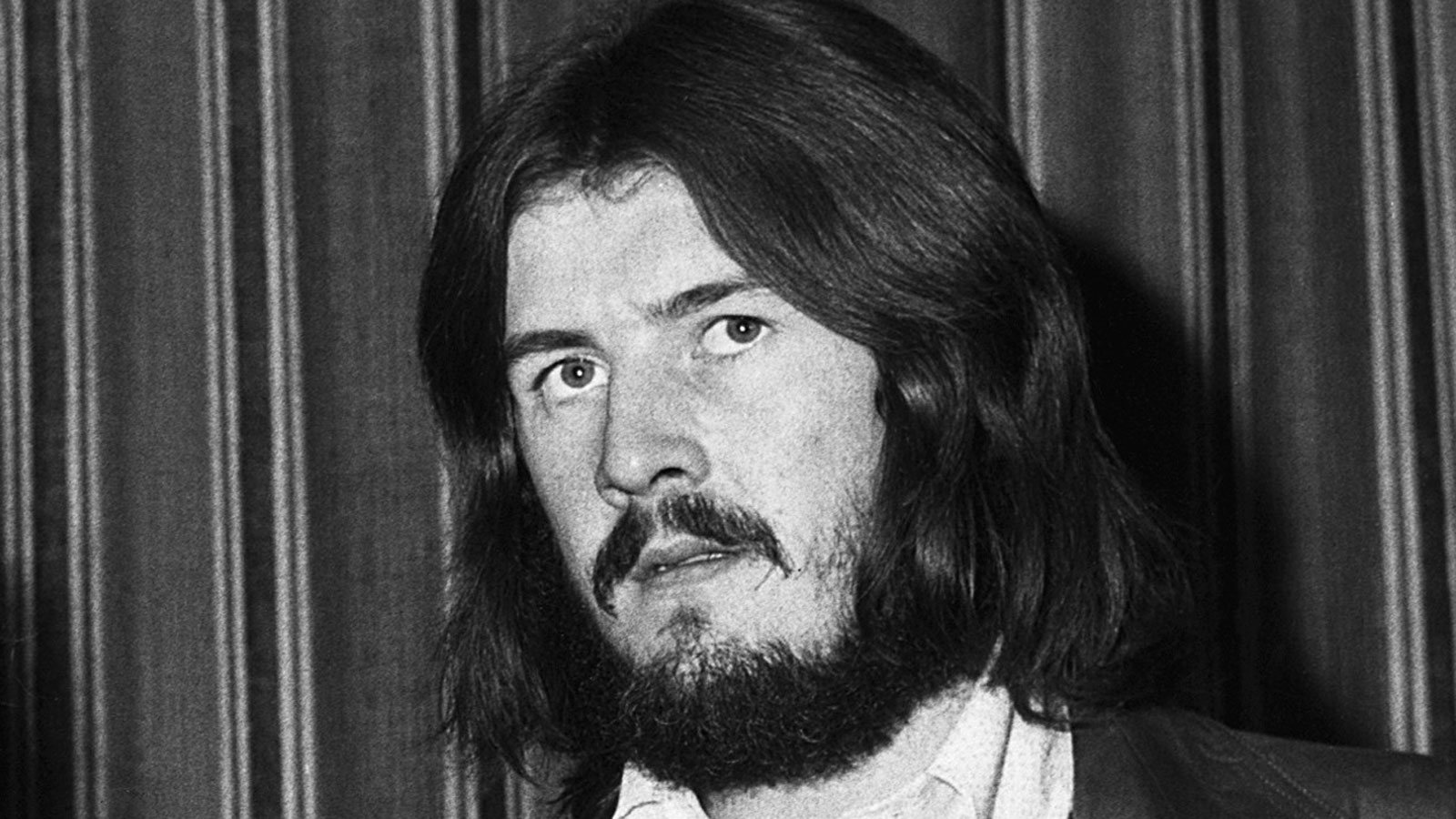
1. John Bonham, Led Zeppelin
“Number one on the list should be John Bonham for sure,” says Yoshiki.
“I started playing Led Zeppelin covers of them when I was twelve years old. I started playing drums when I was ten. I would go, ‘How did he play that? One kick drum?’ That was very impressive. He was one of the reasons I kept playing drums.”
Yoshiki names Led Zeppelin IV as his favourite album by the band. It was Bonham who popularised the use of acrylic drums with his Ludwig Amber Vistalite set that he played between 1973 and 1975. Yoshiki’s live kit of choice with X Japan is a clear acrylic set that was custom made for him by Tama.
“It’s great for the lighting,” he says. “Sound-wise, it’s not ideal. You need to hit so hard to get the sound, because the shells don’t ring. If it’s wood, it rings more but acrylic doesn’t ring at all, it’s basically just the head so it’s not easy to play those kinds of drums. You have to hit really hard.”
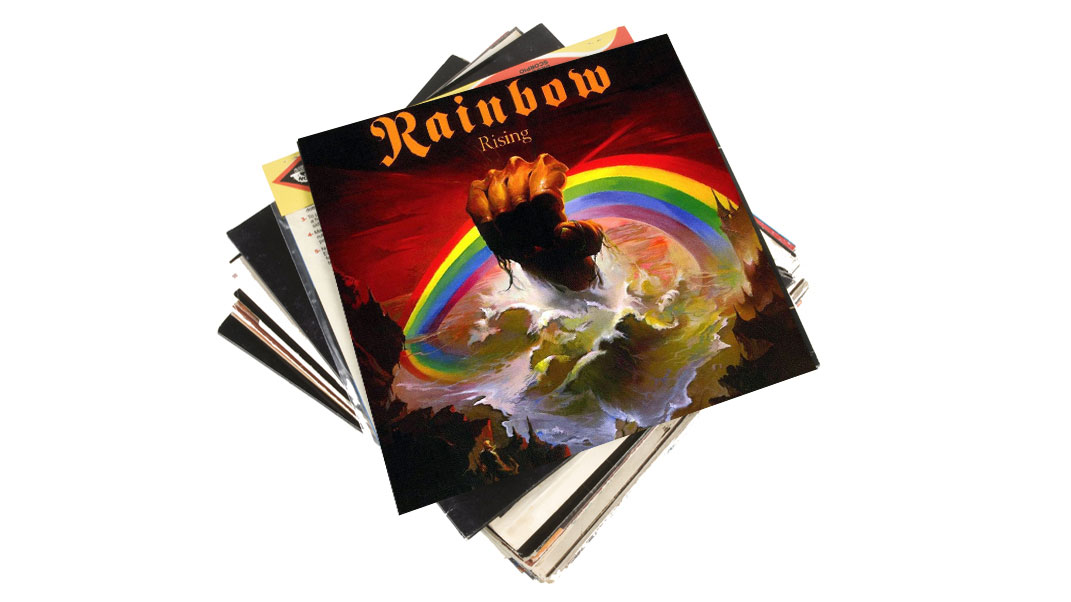
2. Cozy Powell, MSG, Whitesnake, Rainbow, Black Sabbath, etc
When Yoshiki first started drumming as a kid, he just had a single bass drum set up, but that wasn’t to last. “Then eventually Cozy Powell influenced me to start playing double bass drums,” he says.
Powell played with many of the biggest names in rock during his remarkable career, including a cutting a string of classic albums with Rainbow. “Stargazer! We did a cover of that. It’s signature Cozy Powell,” says Yoshiki.
Powell used to play his epic, bombastic drum solos to classical compositions, including The 1812 Overture by Tchaikovsky. Now Yoshiki is following in his footsteps when he does his solos.
I practiced so much just double bass, I can do completely different things with my hands and feet
“I usually use Rachmaninov or Tchaikovsky, sometimes own of my own classical compositions,” he says. “I like to improvise. Because I love double bass so much I keep the kicks going, sometimes going faster or slower, then I play triplets or sixtuplets over that.
"I practiced so much just double bass, I can do completely different things with my hands and feet. I can play different beats on top of what’s going on. That’s my strength I think. So the double bass is always going then I can do whatever on top.”
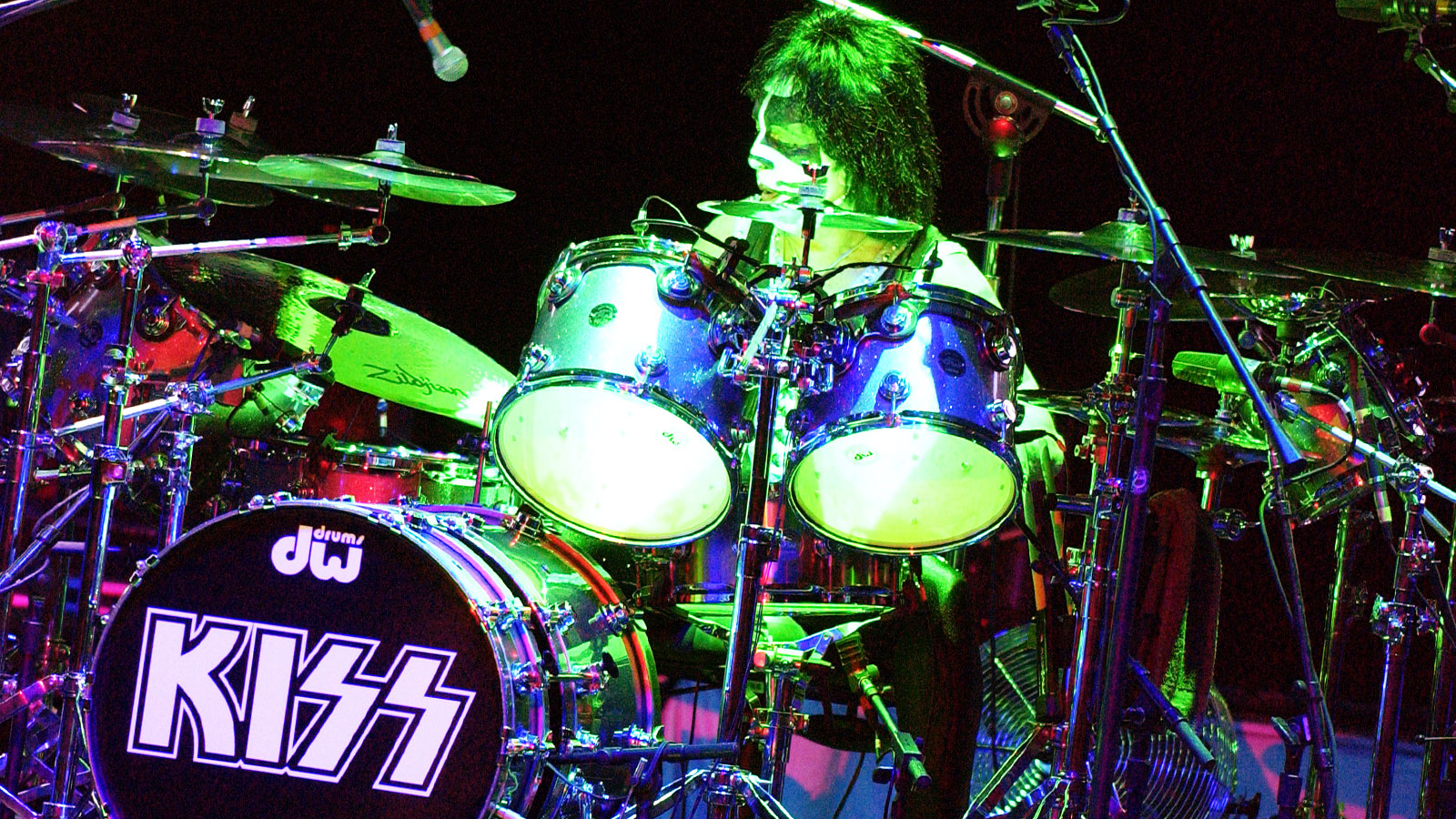
3. Peter Criss, KISS
“He’s not only a drummer, he’s also a singer. When he sang Beth, that influenced me,” says Yoshiki, who first saw KISS perform when he was just a kid.
I went to see KISS when I was ten years old, I went with my mother
“I went to see KISS when I was ten years old, I went with my mother. Seeing that drum riser go up and up and up – whoa!” he says. Yoshiki’s mother had no idea what she had let herself in for. “She thought it was crazy, she didn’t know what was going on,” he says.
“She was a very traditional mother. My mother ran a kimono shop, she was very conservative. She didn’t know what she was going to see.”
Yoshiki picks out Detroit Rock City as his favourite piece of Criss’s drumming, although he wrote a classical arrangement of the KISS track Black Diamond that he played with the American Symphony Orchestra on the 1994 tribute album KISS My Ass.
“I was talking to Gene Simmons at that time,” says Yoshiki. “He suggested some songs from Music from The Elder, then I said, ‘I can make Black Diamond classical.’ ‘What? Really!’ So I played it for him, ‘Oh, that’s great.’ Actually that was only going to be on the Japanese version of that tribute album, KISS My Ass, but he liked it so much he put it on the worldwide version.”
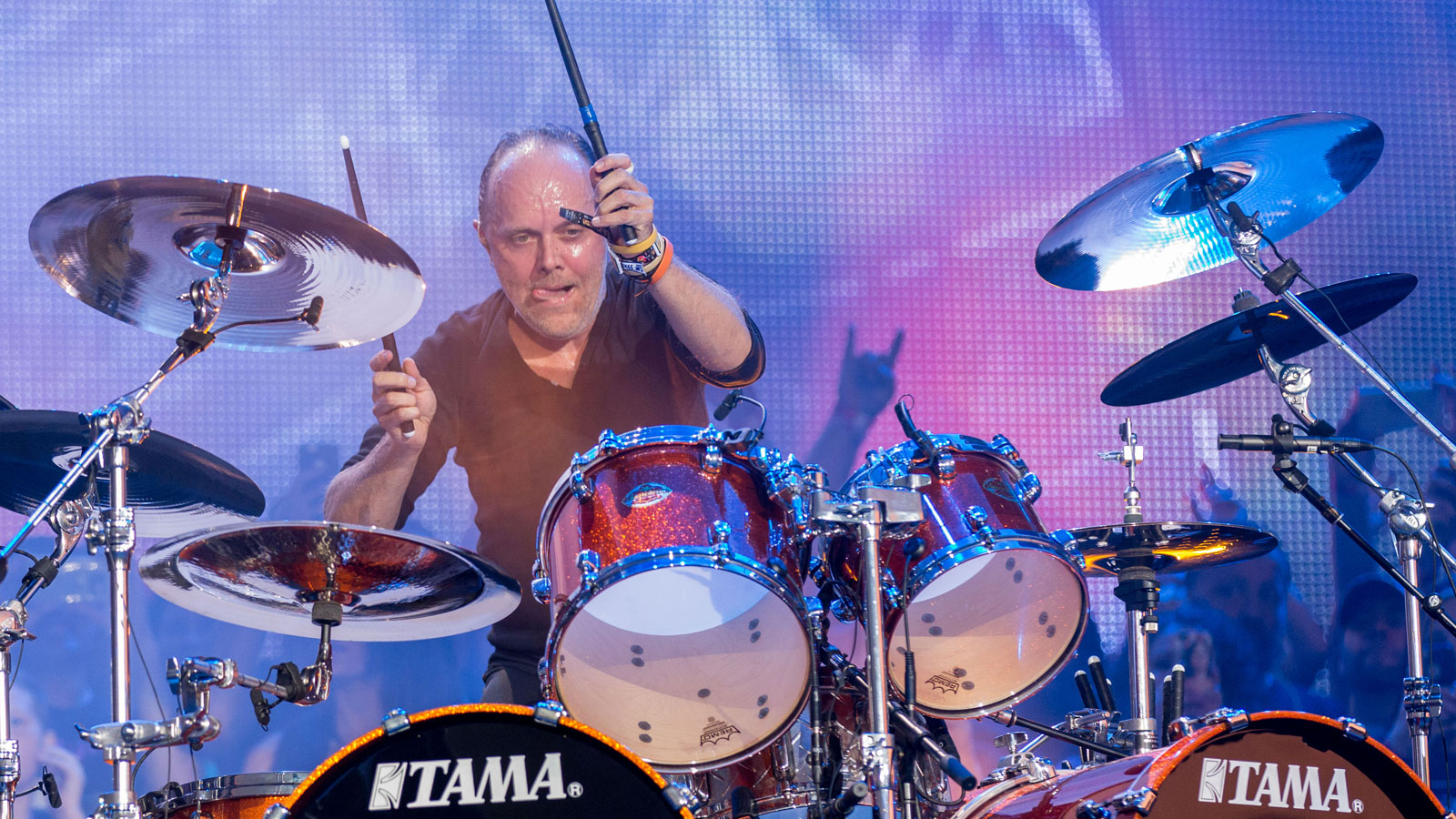
4. Lars Ulrich, Metallica
“I like Lars. I know him. I’ve met him a couple of times. He plays very hard,” says Yoshiki who is a great fan of Metallica’s track One.
“In X Japan we used to warm up with that song sometimes, it’s a great song, great drummer. He’s a very smart person too.”
Both X-Japan and Metallica have seen their sounds and musical style evolve considerably over the years. “Metallica and X Japan are from the same era,” says Yoshiki.
“We started around the same time, maybe they were a little earlier than us, but we were playing thrash metal at that time.
"Their third album, Master Of Puppets, that’s a great album. On The Black Album, they became a little more mainstream and they started playing more medium tempos instead of fast, but I like their fast songs.”
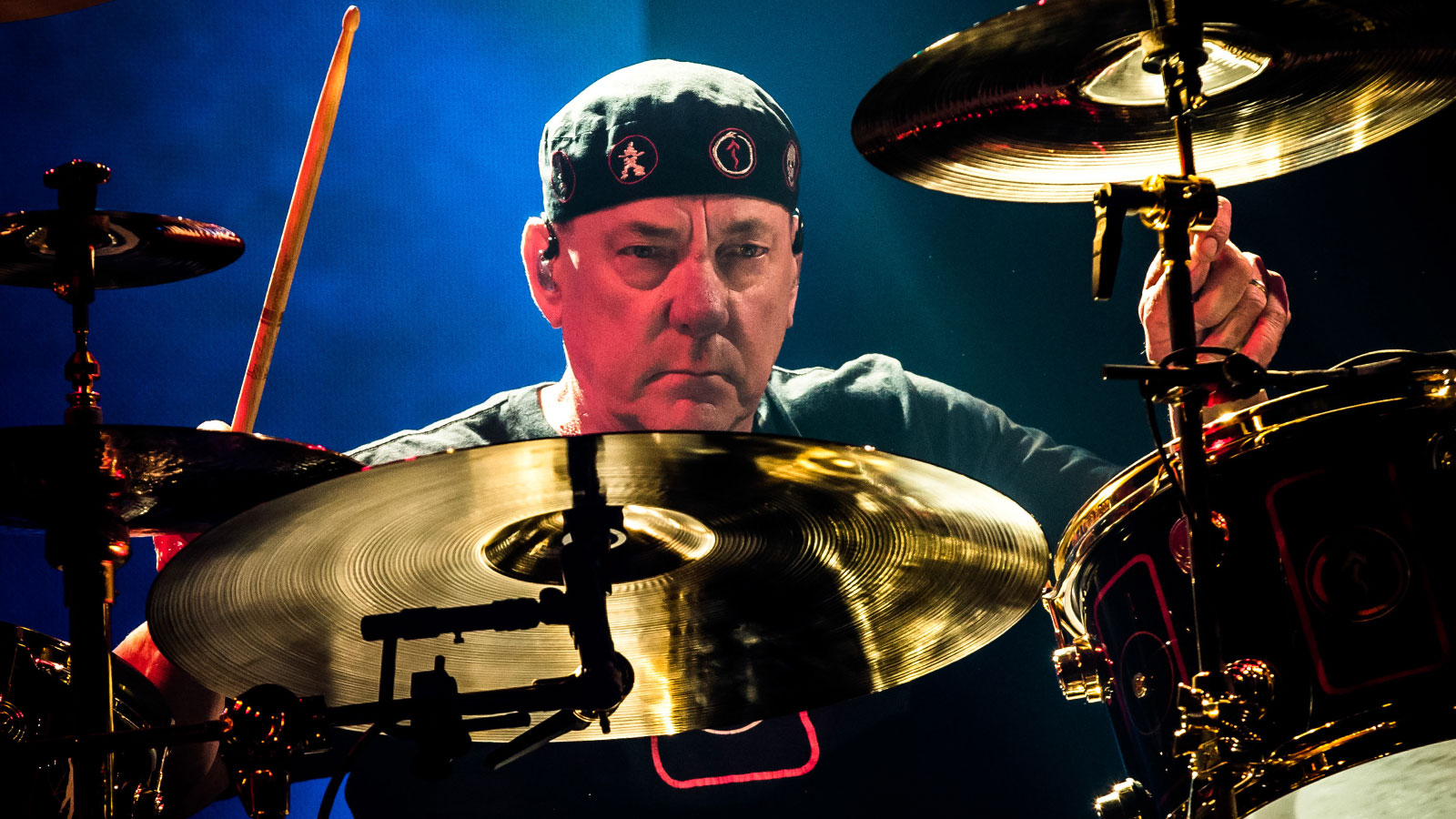
5. Neil Peart, Rush
“Great drummer,” says Yoshiki.
While he played along to Led Zeppelin as a young drummer, he says he never tried to tackle anything from the Rush catalogue “I didn’t try to cover them because it was too complicated. They don’t do 4/4, they go in 7 or 3 or whatever, you have to count,” he says.
I started playing classical piano when I was four years old so I learned all this classical stuff first before I got into rock
As well as navigating the complex time signatures of Rush, Peart is the lyricist in the trio. Likewise, Yoshiki is the principle songwriter in his band and he takes a meticulous approach to writing music.
“I’m mainly more of a songwriter than a drummer actually,” he says. “It’s strange because I started playing classical piano when I was four years old so I learned all this classical stuff first before I got into rock, so I write everything in a score, then I give it to the guitar players.
"I even write everything for the drums in a score before I play it, then I start playing with the band. Everything is decided before I play. Of course I make some minor changes but everything is scored.”
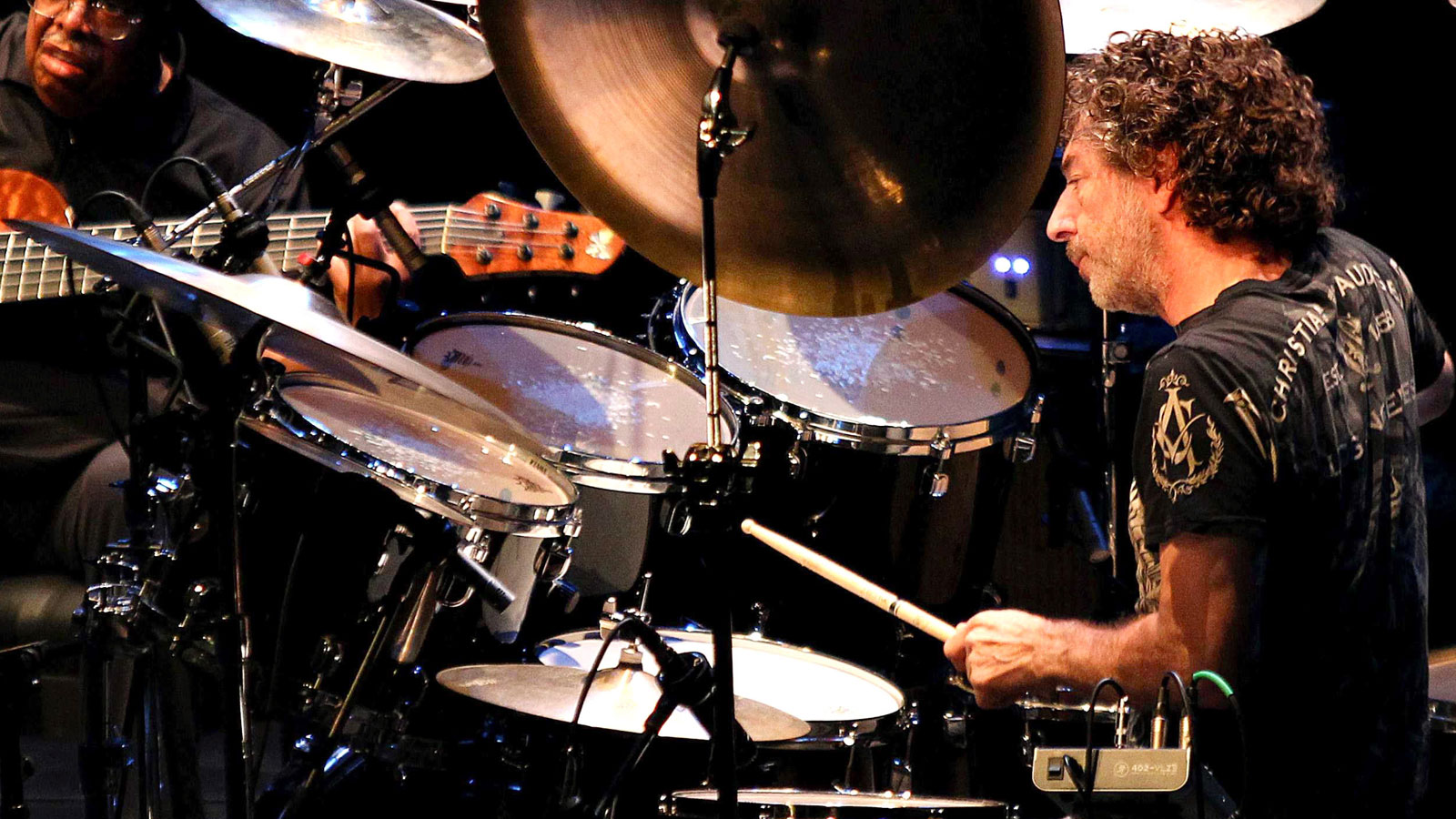
6. Simon Phillips, Toto, The Who, Michael Schenker Group, Hiromi, sessions
Born in Britain but based in LA, Simon Phillips has played everything from heavy metal to jazz and like Yoshiki he uses an imposingly large drum set.
Since Yoshiki likes to chart out everything that he plays, does he tend to think of his parts purely rhythmically or does he ever think of the drums as a melodic instrument?
The most important part is you have to be the rhythm-maker for the band
“Good question,” he says. “Sometimes I try to create some kind of melody with the drums. My problem is I came from classical music. Classical music is never at a steady tempo, it’s always changing – slow, fast, slow, fast – so I had a really hard time staying at just one tempo.
"I had to practice a lot with a click. But you can create more like a soft touch and a hard attack to create some kind of melody and make it dramatic. When I play drums I kind of sing the drum line so that sometimes can create a melodic vibe.
"The most important part is you have to be the rhythm-maker for the band. The drums should support what’s happening in the music with the guitar, vocals and everything. At first I was having a hard time doing that.”
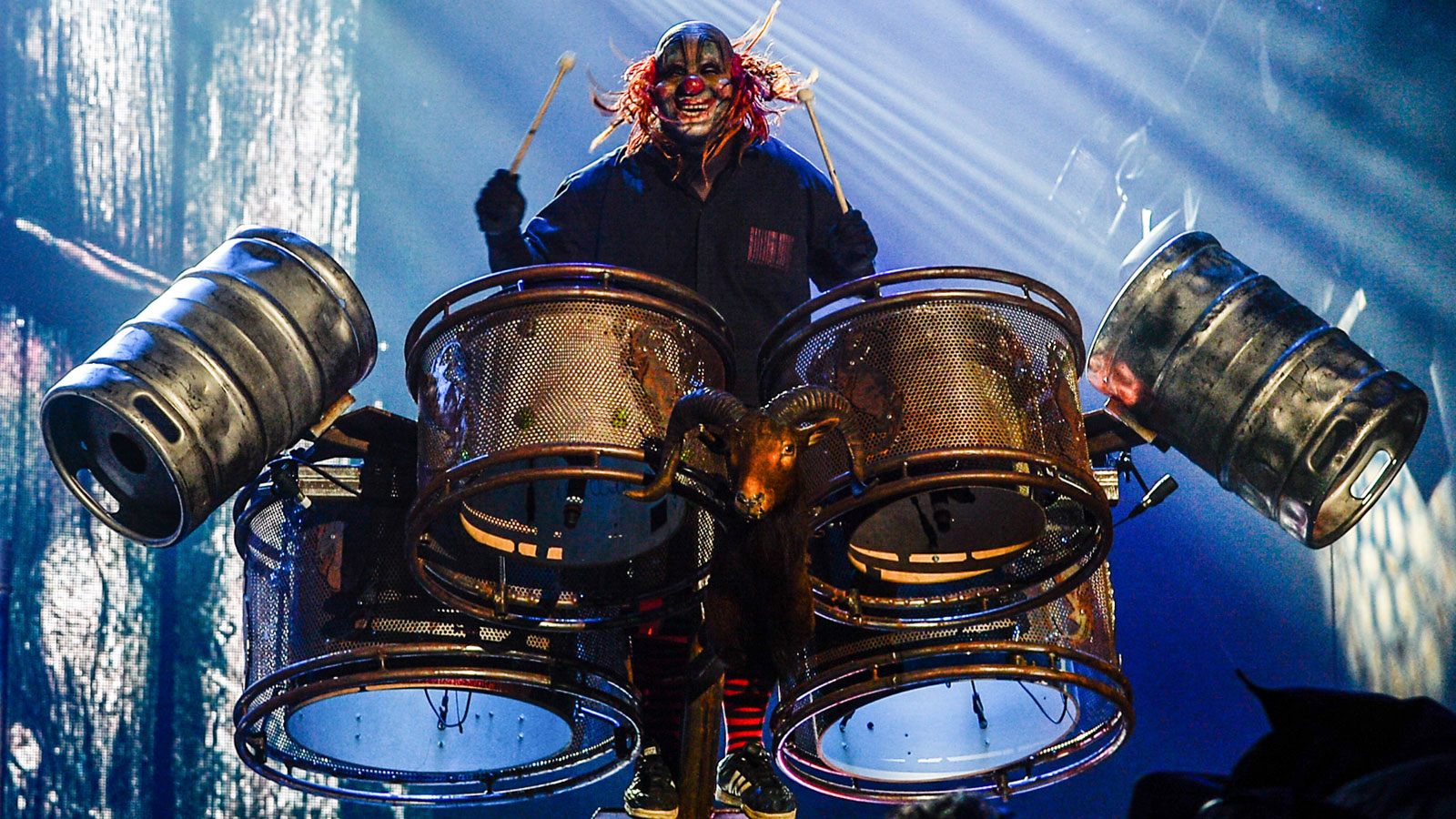
7. Jay Weinberg, Slipknot
“I just heard the new Slipknot,” says Yoshiki. “The new drummer from Slipknot is amazing, just really fast and really tight. I’d love to see them live. I thought he’s really good.”
Like Weinberg and Joey Jordison before him in Slipknot, Yoshiki has tremendous facility with both his hands and his feet on the kit, but when X Japan play live he has to bring another skillset to the table when he switches from his drums to the piano for the big ballads.
“I’m used to it,” he says about the challenge of going from the sheer physicality of drumming to the more refined discipline of tinkling the ivories. “I’ve been playing classical piano and rock drums for a long time,” he says.
“Sometimes it’s hard because if you run superfast and then stop and do something else, then start running again, it’s not easy but I’ve kind of got used to it.”
That sounds not unlike the head-tripping hybrid sport of Chessboxing in which participants alternate between the chess board and the boxing ring. “That’s exactly what I mean!” says Yoshiki. “Oh wow, I didn’t know that! That’s really funny. I’ve got to check it out.”
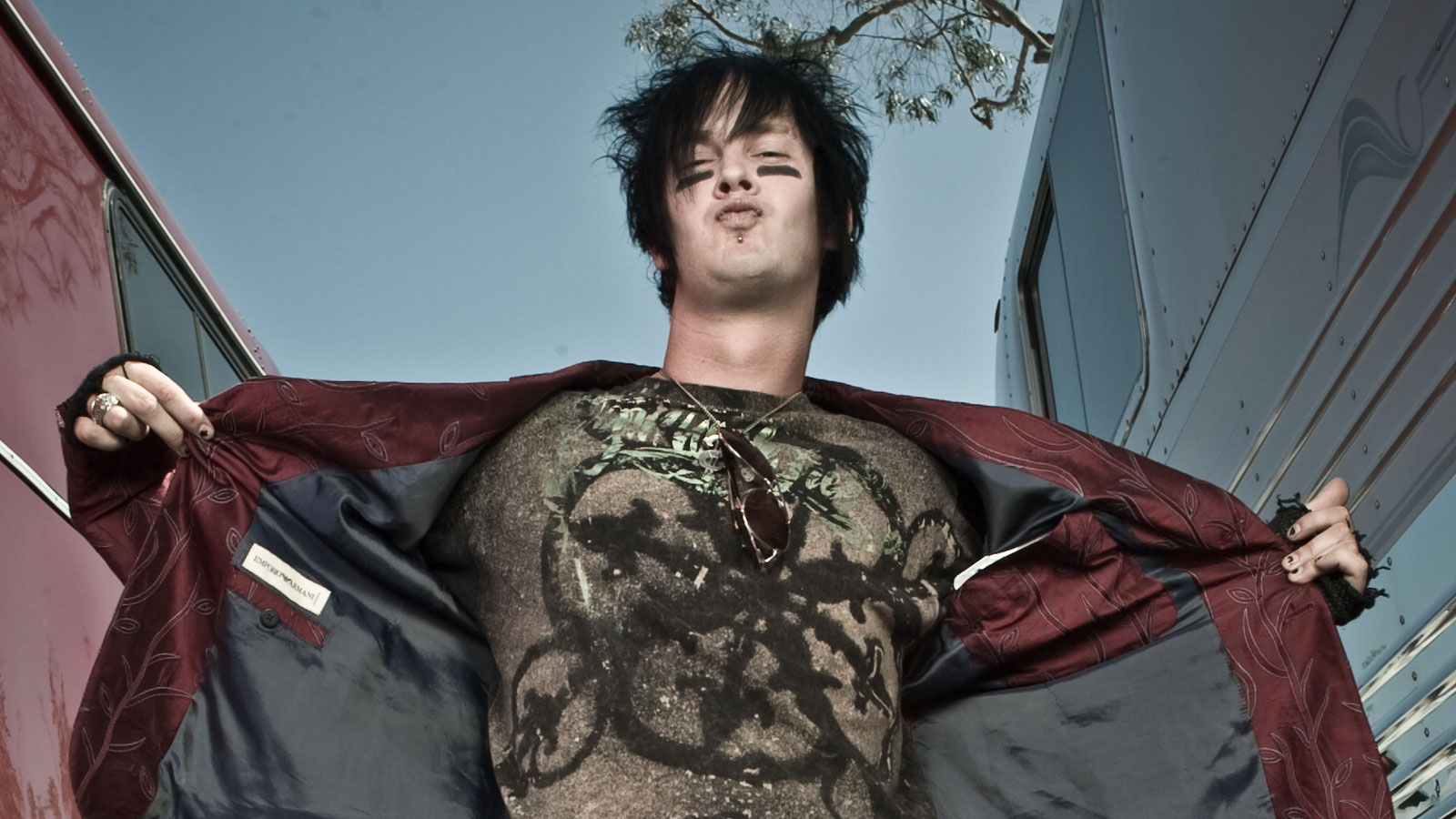
8. The Rev, Avenged Sevenfold
“He was a really good drummer. I never met him, but I have a few albums,” says Yoshiki on the subject of the late Jimmy ‘The Rev’ Sullivan who passed away in 2009.
Just as Avenged Sevenfold have evolved over the years from their early days as a metalcore band, through to playing groove metal and then embracing hard rock, X Japan’s sound continues to develop from their start as a thrash metal band through to their stadium filling rock anthems.
On this one we really care about the quality of the songs more than technique
March 2016 will see the release of the band’s first album of new studio material in twenty years. “X Japan is always evolving,” says Yoshiki about the as yet untitled album. “Of course we’re going to be playing our really fast songs in the live show which means we don’t have to keep creating the same song again and again and again.
"There are not that many fast songs but there are still a few complicated songs as well. One song, if that song makes it to the album because we’re still recording, is about ten minutes long. But on this one we really care about the quality of the songs more than technique.”
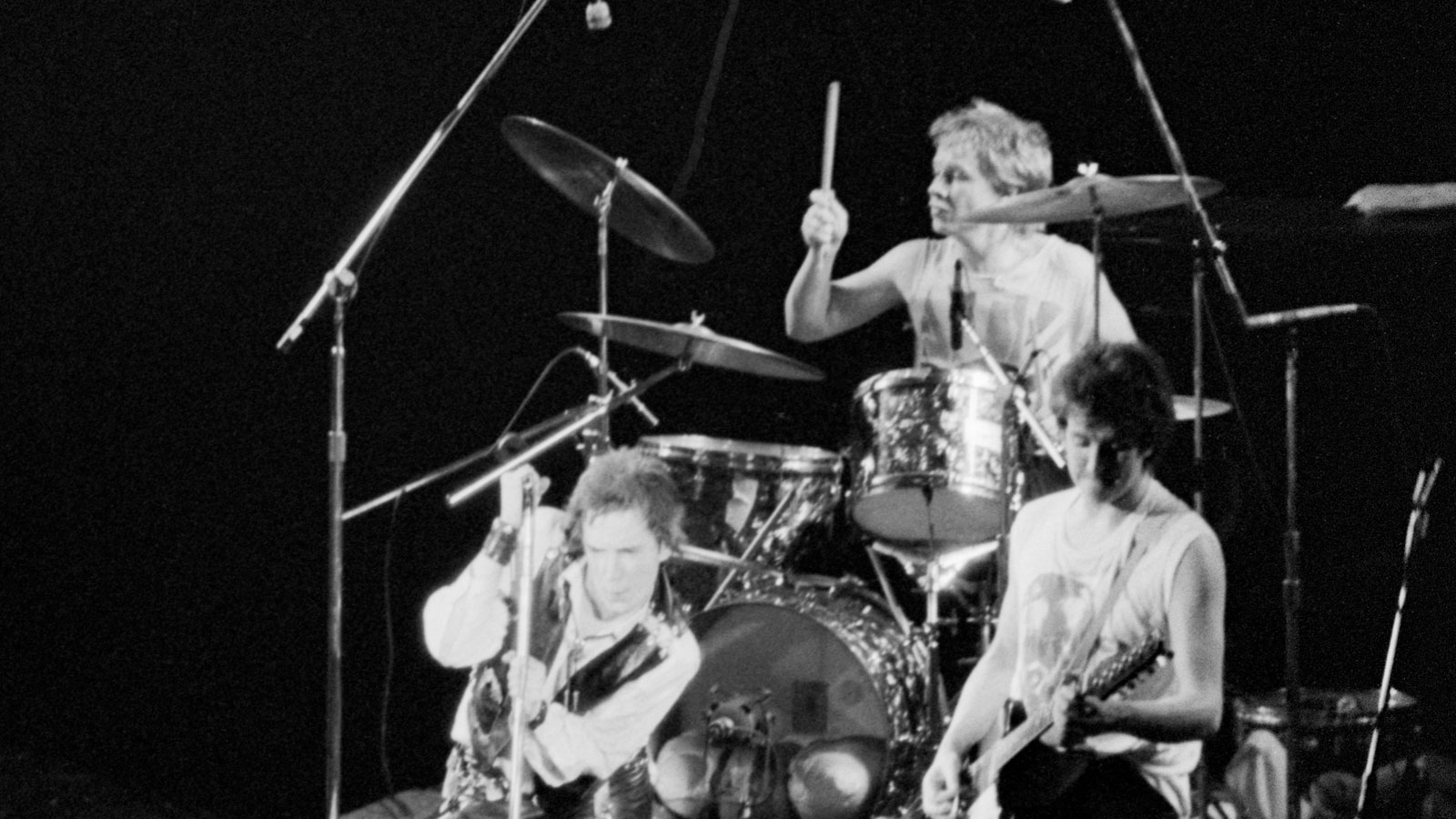
9. Paul Cook, The Sex Pistols/ Topper Headon, The Clash
“I was influenced by punk rock a lot. The Clash is just an amazing band. I went from classical music to hard rock to punk then came to thrash metal,” says Yoshiki.
“I was very into the Sex Pistols, we did a bunch of their covers. I met Steve Jones in Los Angeles. One time he came to my house and we did a photoshoot together in my place. He influenced me a lot.”
Like both Cook and Headon, Yoshiki gives the drums an absolutely battering and in the studio he uses a titanium kit. “My titanium drums were made by special order,” he says.
“The shells are really thin, they ring really well. Sometimes I use wood, maple, but of course for the live show I use acrylic drums so any live recordings feature those drums. The titanium drums are so much easier to play. Acrylic drums don’t ring.”
In the studio he uses Evans Coated heads, but live for visual effect his toms and bass drum all feature clear heads, even though they don’t last very long. “The clear ones are not strong enough for me,” he says. “Even in one X Japan show the heads are pretty much dead because I hit really hard.”
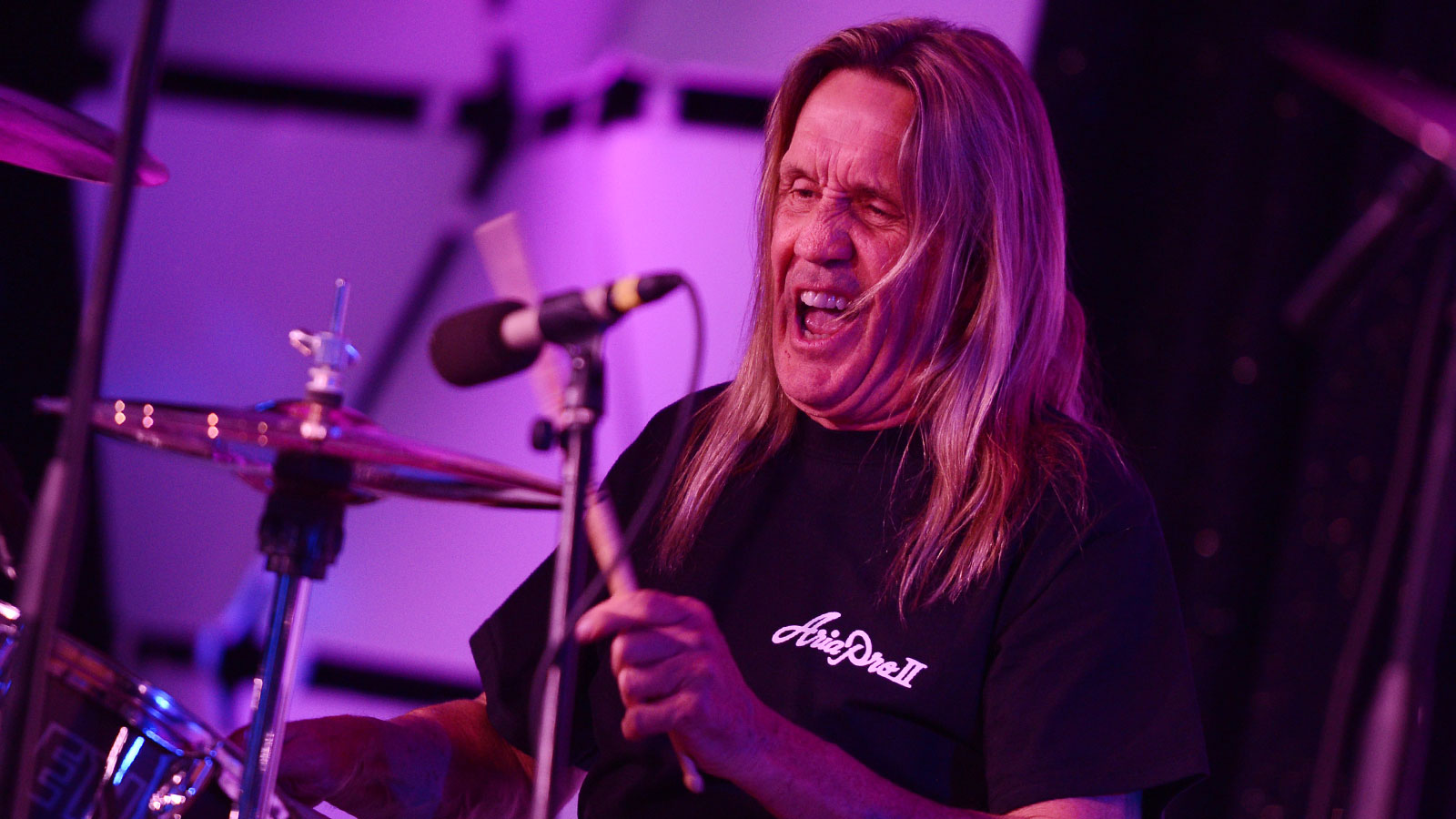
10. Nicko McBrain, Iron Maiden
“I’m a huge fan of Iron Maiden,” says Yoshiki. “He [Nicko] uses so many toms. Iron Maiden influenced me the most as a rock band.”
I’ve been influenced by so many rock artists from the UK, so this is the place I wanted to debut our new album
With his massive set-up that includes eight tom-toms arranged around him, McBrain is another very melodic drummer who often echoes the guitar parts of Dave Murray, Adrian Smith and Janick Gers with his playing.
Asked if he works mainly with the guitars or the bass line in crafting his drum parts, Yoshiki replies. “The guitar I think. The bass is supporting the low end and supporting the guitar. And then I try not to conflict with the vocal because sometimes I play a little too much – oops! I try to not stand out that much, believe it or not.”
Given his love for British rock and metal, perhaps it shouldn’t be a surprise that Yoshiki and X Japan have chosen Wembley Arena as the venue to unveil their new album and Stephen Kijak’s forthcoming documentary about the band next March.
“I’ve been influenced by so many rock artists from the UK, like Iron Maiden or Led Zeppelin,” he says, “so this is the place I wanted to debut our new album.”